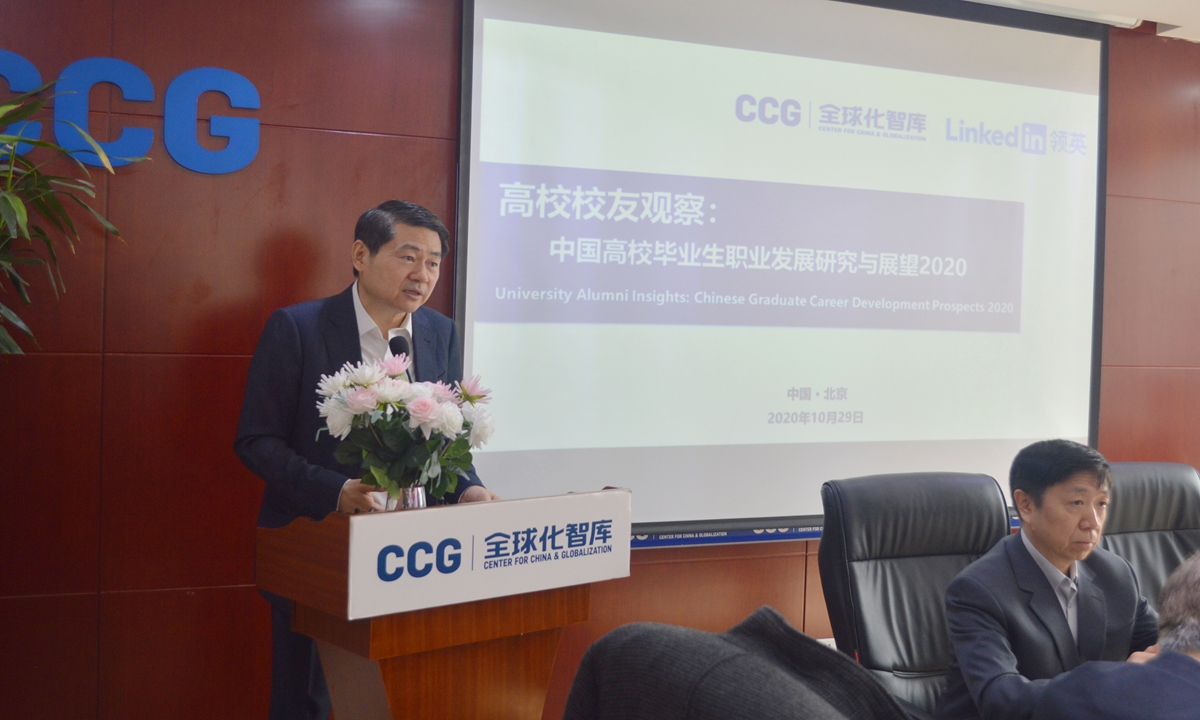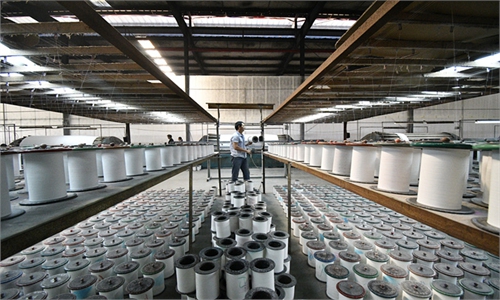
Pohto: Courtesy of the Center for China and Globalization.
The negative impact caused by the COVID-19 epidemic on China's job market has ebbed as employment rates in the country reached the same level as last year at the end of April, although challenges remain. Meanwhile, Chinese students' fundamental demand for studying abroad has not declined, according to a Chinese think tank report on Thursday.
The Center for China and Globalization (CCG) released the Chinese Graduate Career Development Prospects 2020 Report, outlining China's employment and overseas study situation during and after the COVID-19 epidemic and providing insights into the development of China's college graduates based on the LinkedIn Big Data platform and information on more than 218,000 graduates from 10 top universities in the country.
With the COVID-19 pandemic severely hitting the global economy, recent college graduates have been faced with a dried-up job market and tough employment season. LinkedIn's global employment rate data showed that employment rates in most countries and regions during the pandemic have experienced a sharp drop compared with that in 2019.
Thanks to its effective epidemic control measures, China is the first country to show positive growth in hiring rates among all those severely affected, with an annual growth rate of around 11 percent by the middle of June 2020, said the report.
China's job market experienced the lowest downturn from February 3 to 9, around one to two weeks after the outbreak. During that time, the number of job opportunities posted by employers saw a drop of about 35 percent compared with 2019 and the number of applications sent by job-seekers declined by 25 percent, it said.
Among all the sectors, consumer goods, manufacturing, and software and IT services sectors were hit hardest due to social distancing policies, immigration controls, and restrictions on global supply chains, while the health, remote education and legal industries were the least affected.
China's job market started to see a revival in March and the employment rates reached the same levels as last year in around late April and early May, according to data provided by LinkedIn.
But challenges remain in China's employment environment. A significant imbalance between supply and demand in the job market still remains. Industries such as transport and logistics, media and education are facing talent shortages, while manufacturing, software and IT services are experiencing fierce competition.
Meanwhile, the complex and grim international situation and attempts by the US and other countries to crack down on China's scientific and technological development also brought obstacles to China's talent training in related fields.
Liu Yongzhi, an official from the China International Talent Center at the Ministry of Science and Technology of China, said at the conference that China will strengthen investment in training and support of talents in technology fields, such as biosafety, quantum mechanics and blockchain, at the policy level in its 14th Five-Year Plan (2021-25) and 2035 long-term plan.
"Despite facing external pressure in the development of its high tech industry, China's attitude of being open to global cooperation in technological and scientific research will not change, especially in the medical and COVID-19 vaccine related fields," another government official at the conference, who asked to remain anonymous, told the Global Times.
The report also showed that Chinese students' fundamental demand for studying abroad has not declined, even though their willingness saw a temporary drop as a result of health and safety concerns and visa restrictions. Overseas studying remains the first choice for them to receive high-quality international education.
The Ministry of Education and other authorities issued a document in June, reiterating that studying abroad will remain an important channel for China to cultivate and train young talents needed for China's modernization drive, noting that the impact of the epidemic is just temporary.

